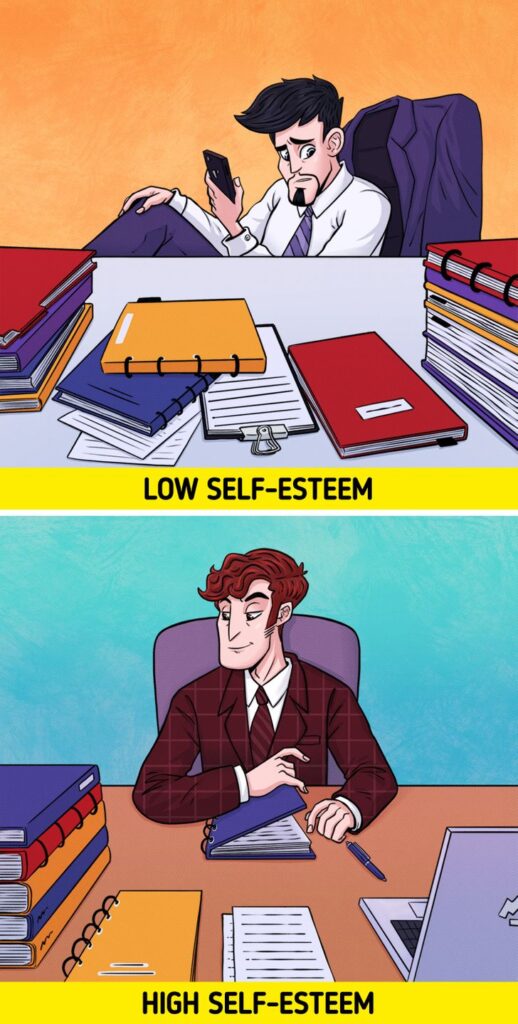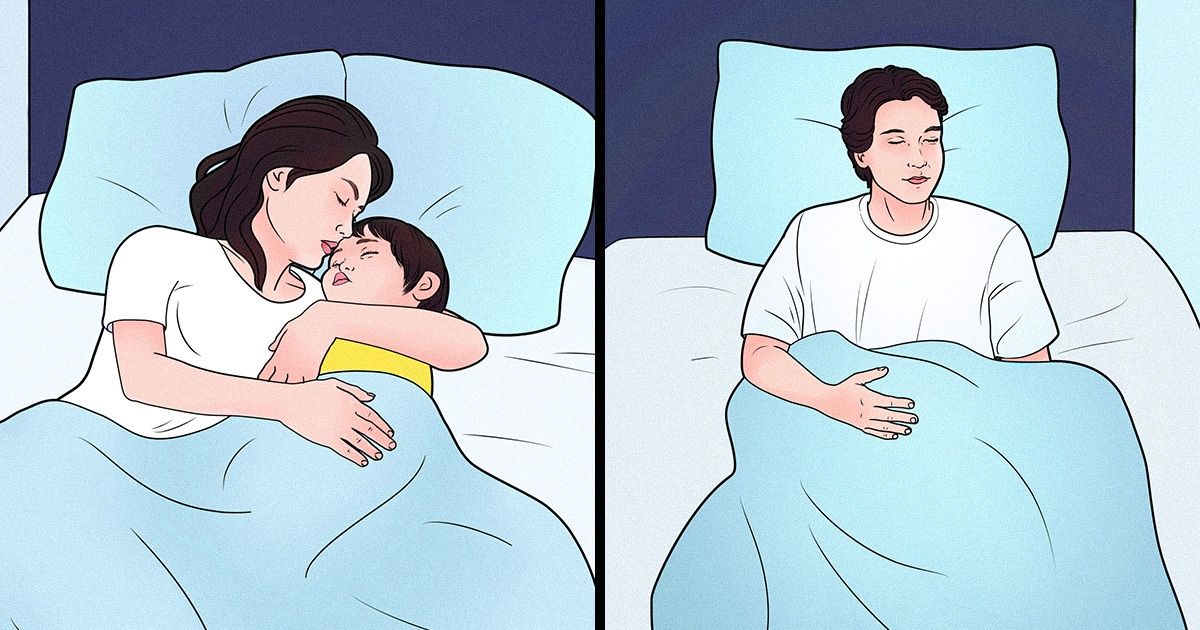If you notice that you often compare yourself to others and feel that they are better than you, or are in constant fear of making a mistake and even failing, these could be signs that you have low self-esteem.
Interestingly, your thoughts and actions can make you even more self-aware than you already were. And if you stop doing certain things, you may notice that you really start to feel better.
We hope that you will find a way to love yourself and be more confident. So here are some things that can lower your self-esteem that you should avoid doing.
How to Stop Sabotaging Yourself
You Always Slouch

Stress can affect your posture, which in turn can affect your stress levels. Research suggests that sitting or standing up straight is better for your self-esteem and your mood.
It can also make you feel less tired and help you cope better with stress. So if your posture is hunched over, it can have the opposite effect and feel tired, less confident, and in a bad mood.
You Procrastinate

People with low self-esteem are more likely to procrastinate because delaying or avoiding tasks serves as an excuse if the results are poor and therefore “protects” the person’s self-presentation.
They are afraid of being imperfect and not doing their job well enough, and procrastinating is their way of dealing with that fear.
However, this only leads to more anxiety and guilt, as well as lower energy levels and lower self-esteem. If you are that type of person, try to stop thinking that you need to do everything perfectly and enjoy the process.
Also, when you do something, try not to think about the things you don’t like about the task and focus on the benefits it will bring you when you are done.
You Use Words Like “should” And “must.”

These words don’t have to have a negative meaning, but they get troublesome when you set goals that are really hard to reach and don’t accept anything else as good enough. Strict rules will only stress you more, and if you can’t follow them, you will likely end up disappointed.
Try to change your thoughts so that when setting goals you also allow yourself to be imperfect or make mistakes.
You Blame Yourself When It’s Not Your Fault

If you often feel guilty about something, try to become aware of the situations that cause it and the thoughts that come to mind when it happens. Think critically if a mistake that happened is really your fault, or maybe it’s really someone else’s fault, or just an accident, and nothing could have changed anyway.
Ask a friend what he thinks about the same situation and you will find that he blames yourself, even though it was not you who screwed up.
You Always Expect The Worst

You may think that expecting the worst outcome can help you handle the situation better, especially if something goes wrong because you will be prepared for it.
And if all goes well, you will even be relieved. However, this kind of thinking can only solidify your belief that you always fail and that nothing you do turns out to be good enough.
You Feel Like You Have To Be Grateful For Everything

Due to low self-esteem, you rarely get the things you really want and instead settle for less, whether at work or in your love life. You may feel like you don’t deserve more and that you should be grateful for the things you already have.
But that’s not true, so don’t let your doubts or self-loathing stop you from getting what you want.
Do you think you have low or high self-esteem? What could help someone to increase their confidence?


